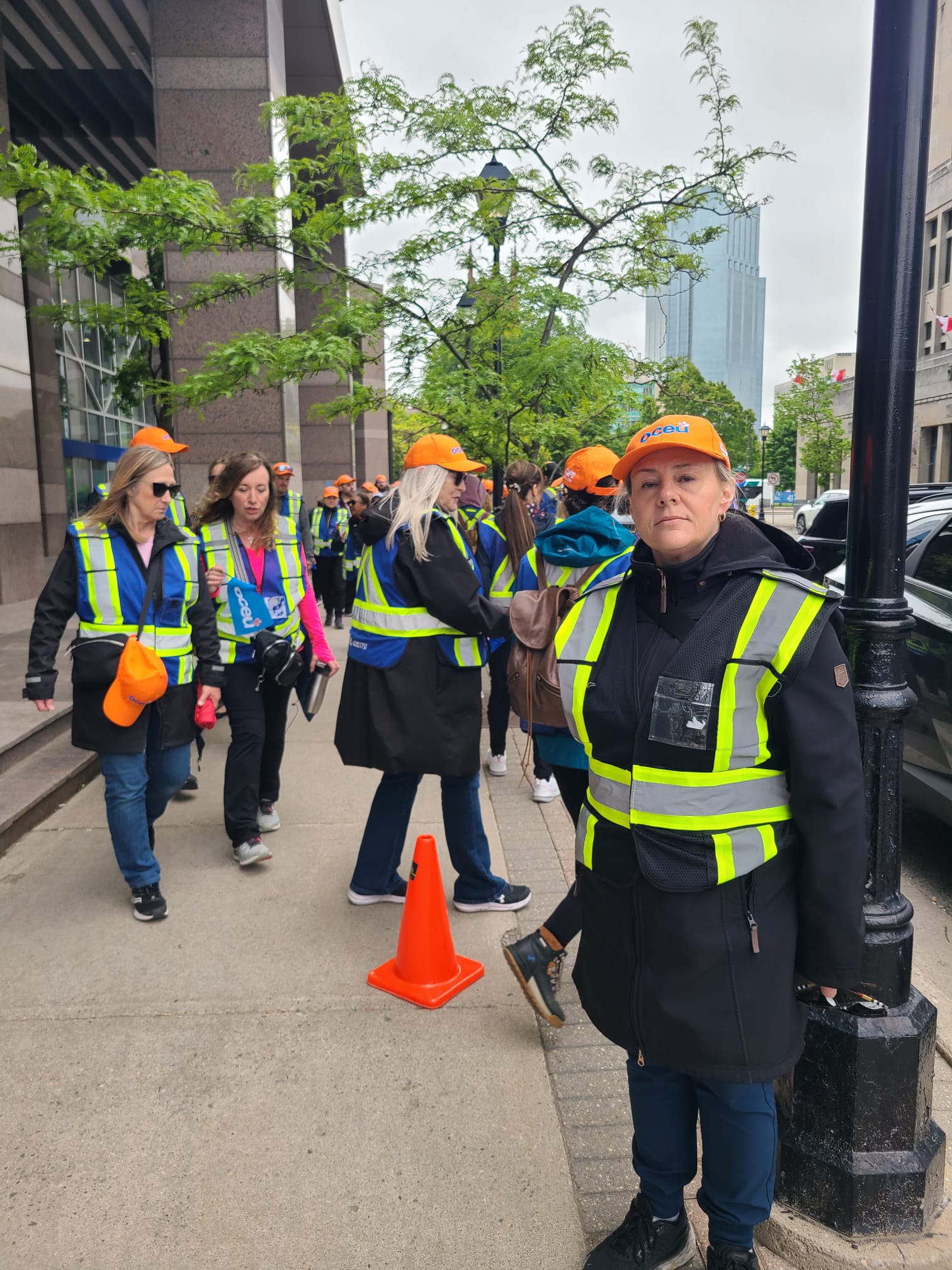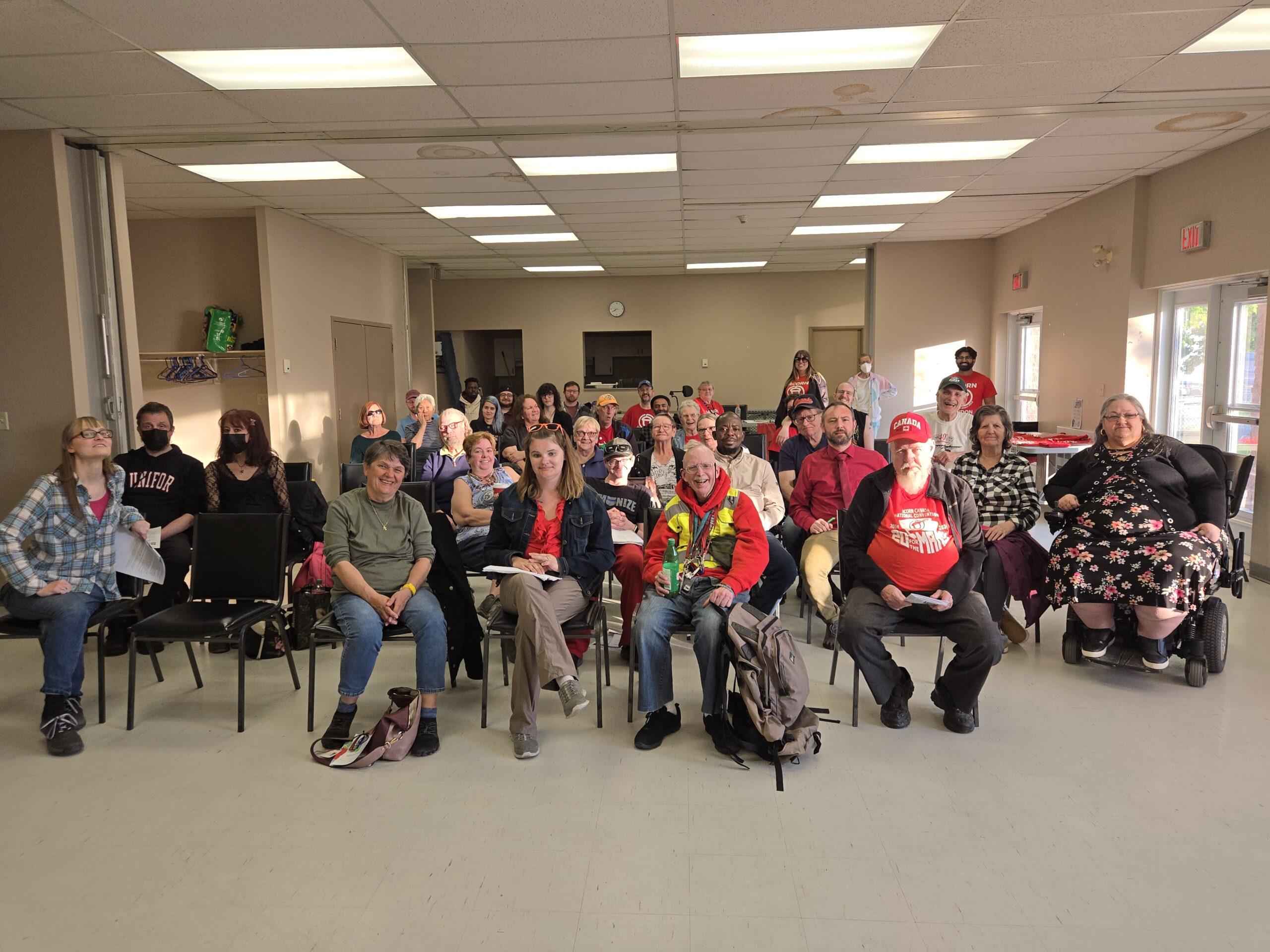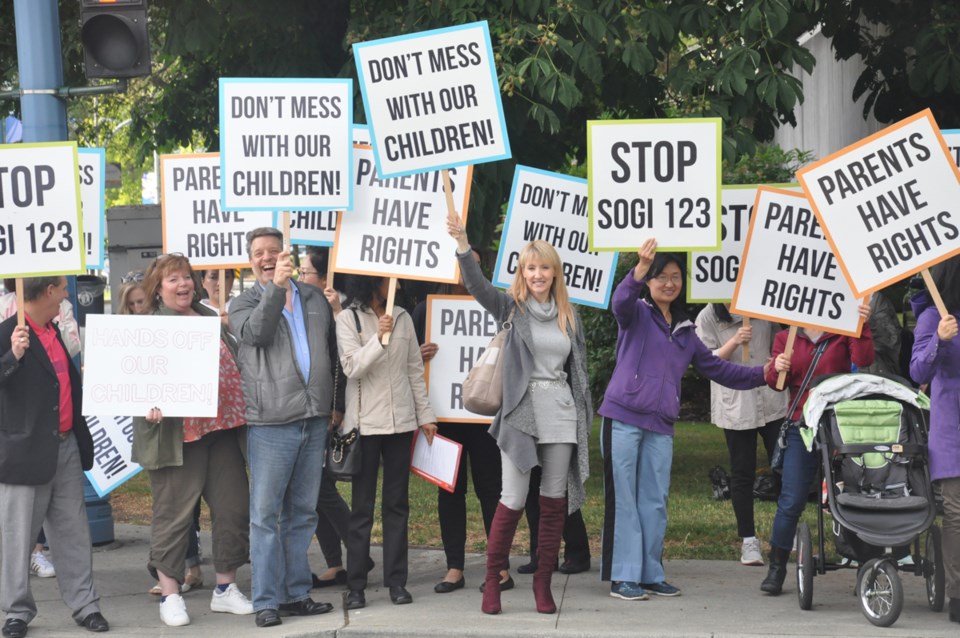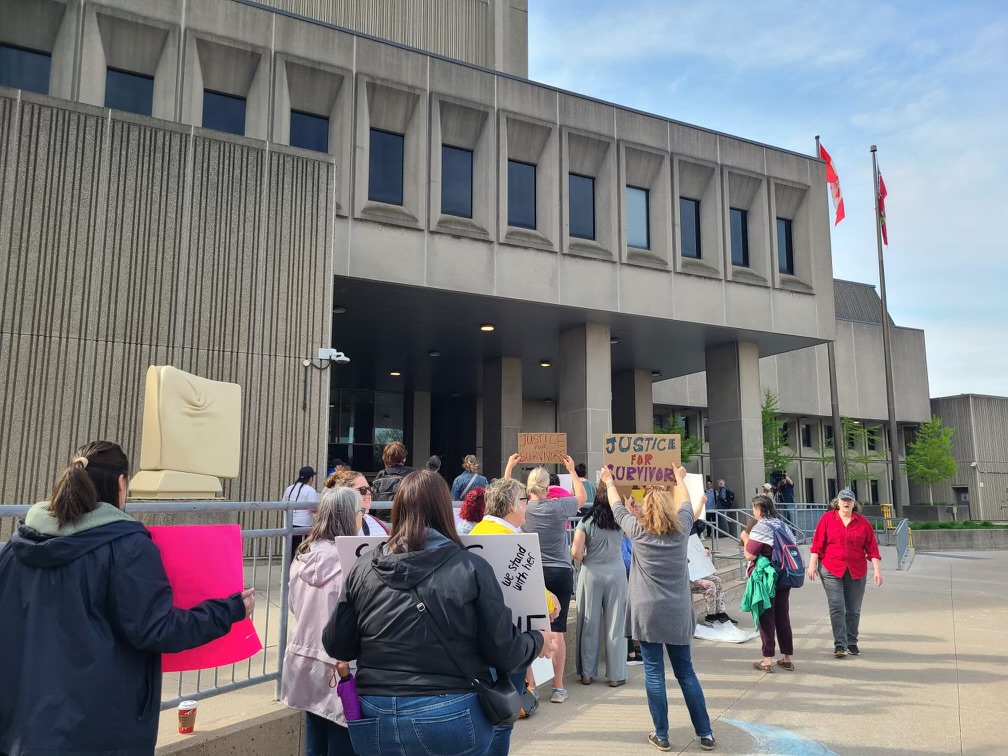Hands Off My Post Office Rally – London, ON
Matthew Webb
Fri June 6, 2025
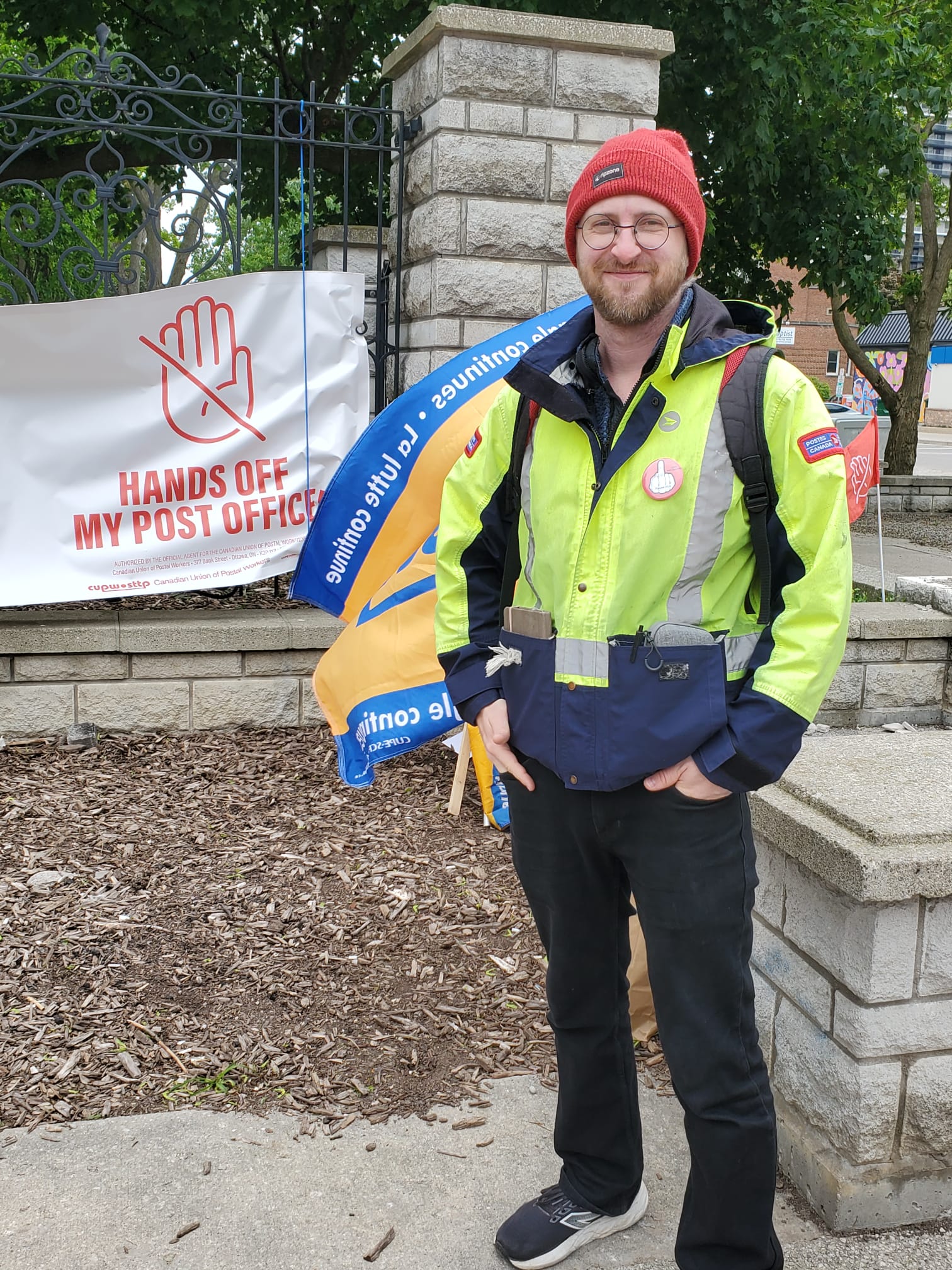
Rallies were organized across Canada on Saturday, to draw support in the Canadian Union of Postal Worker’s (CUPW) on-going struggle to keep Canada Post a public entity. This is a continuation from their 5 week strike in the fall of last year. The union has tried to work with the corporation in order to establish new, innovative ways of delivering the mail, but holds fast to maintaining adequate wages and decent benefits for all employees. The corporation has refused to move on any of the suggestions posed by CUPW’s negotiating team and is pushing the union into another strike position — something that neither side wants.
Throughout the afternoon we heard from speakers representing different organizations involved in the labour movement. To start off the rally we heard from Mark Platt, CUPW National Director for Ontario who informed us of what was happening in Ottawa in the dispute between the corporation and the union. Platt called this “a historic time” as never before have we seen such government interference in negotiations between the corporation and the union.
He added, “This is our time to stand up to Mr. Ettinger [President of Canada Post], who should have been fired years ago. With all the losses at Canada Post any other corporation would have fired this guy. But guess what? The government appointed him, they are too embarrassed to fire him.”
Platt believes that “we are seeing finally in plain sight what the government’s plans are, and what Canada Post’s plans are. They never planned on negotiating a settlement with us ever.” Though the union continues to bargain in good faith, the corporation refuses to move on key issues relating to load-levelling and flexible part-time positions—employment conditions found in private competitors who solely deal in parcels, not mail. Platt summarized, “the employer has given in to the Amazon model, they want to ‘part-time’ our workforce.”
This is the ‘gigification’ of the post office. It is the erosion of the union’s ability to advocate and support workers’ needs, which is further destabilizing an already precarious future. As Platt said, “They don’t care about young people, they don’t care that you can’t make a living off of a part time wage.[…] they are either going to get their way by subjecting us and beating down our labour rights or they are going to hand it off to the private sector.”
Nora Fraser, Co-Chair of the London Chapter of Council for Canadians argued for why it is imperative that Canada Post not be privatized. She said, “Canada Post as a crown corporation that is mandated to deliver postal service to all Canadian communities across the country. Private companies only deliver where they can make a profit.[…] A profit driven delivery model will leave many smaller, rural, remote and indigenous communities unserved or under-served.”
In addition to underscoring the importance of this public service, Fraser also reminded us how important pension plans are. At the start of one’s career it may not be top of mind to think about the years one will spend after retirement. There is a lot of money involved and the corporation has their eye on it, but it is critical for all workers to be able to spend their senior years in dignity with respect. She closed, saying “we call on all Canadian residents to demand that politicians support public services and good jobs in our crown corporations, and not the downward spiral of profit driven service cuts.”
Patti Dalton, President for London and District Labour Council, also came out to show their support for CUPW’s struggle. Dalton said, “we need full time jobs, we need good wages, we need paid sick days, we need good benefits, and we need that for all workers. We can’t accept anything less as a labour movement.”
This sentiment was shared by Mona Aljoujou, a representative from CUPE 1750 Ontario Compensation Employee Union (OCEU) who represents WSIB employees. They have gone on strike for the first time since their inception in 1914. While the employer refuses to move on negotiations, approximately 20,000 claims have been piling up and injured workers are lying in hospital without any WSIB contact.
Aljoujou said,“people should be met with care and not bureaucracy when they are injured.” She went on to link the labour struggles, saying “solidarity means I don’t just stand for myself: I stand for us. It means when one of us is hurt we raise our voice together, when one of us is pushed aside, we lock arms and say ‘not today!’ We will stand with workers at Canada Post and workers anywhere else and make sure they get a fair deal too!”
Continuing in the spirit of solidarity, Makayla C. and Amanda S. from CUPE 2073 Canadian Hearing Services joined the rally. Their union has been on strike for 6 weeks now, fighting for manageable caseloads and to keep their wages at par with inflation. They thanked CUPW for showing solidarity with them on their line, and observed that “at Canada Post and at Canadian Hearing Services we’ve seen two separate labour struggles, but the message from the workers is the same: we’re tired, we’re undervalued, we’re underpaid, and we’re not being heard.”
Amanda explained that they used to have a work-force of 500 people which has been cut in half. Employees are now expected to take on the workloads of what used to be covered by 2 or 3 workers. In both cases of Canada Post and Canadian Hearing Services, “this isn’t just about pay, this is about the dismantling of good union jobs.”
In addition to all of the great solidarity other unions showed by joining this rally in support of postal workers, CUPW had members from locals in London, Brantford, Sarnia, Clinton, Delhi, Windsor, Kitchener, Wingham, Simcoe, Stratford, and Woodstock show up.
The union has tried diligently to come to a reasonable agreement with the corporation; they have asked for binding arbitration in this matter and the corporation has refused. It is now in the hands of the government to tell the corporation that we will proceed with arbitration, or these members and all of those across Canada, will be put to a vote. Will we accept this terrible deal that erodes our job security and decent wages, or say “no” to this unfair treatment, forcing us back on strike after a 6 month hiatus? No one wants to go back on strike; money is tight for a lot of people, and job security is top of mind for a lot of workers. A forced vote amounts to a government attack that bypasses the right to collective bargaining through a trade union representing the workers interests.
In closing Platt said, “the stakes are very high. The company is trying to gut our ranks, they are trying to completely marginalize the union in our ability to represent our members and we will never let them do that. Never. So I have a question here for you: when postal workers’ backs are up against the wall, what do we do!?”
“Stand up! Fight back!”

